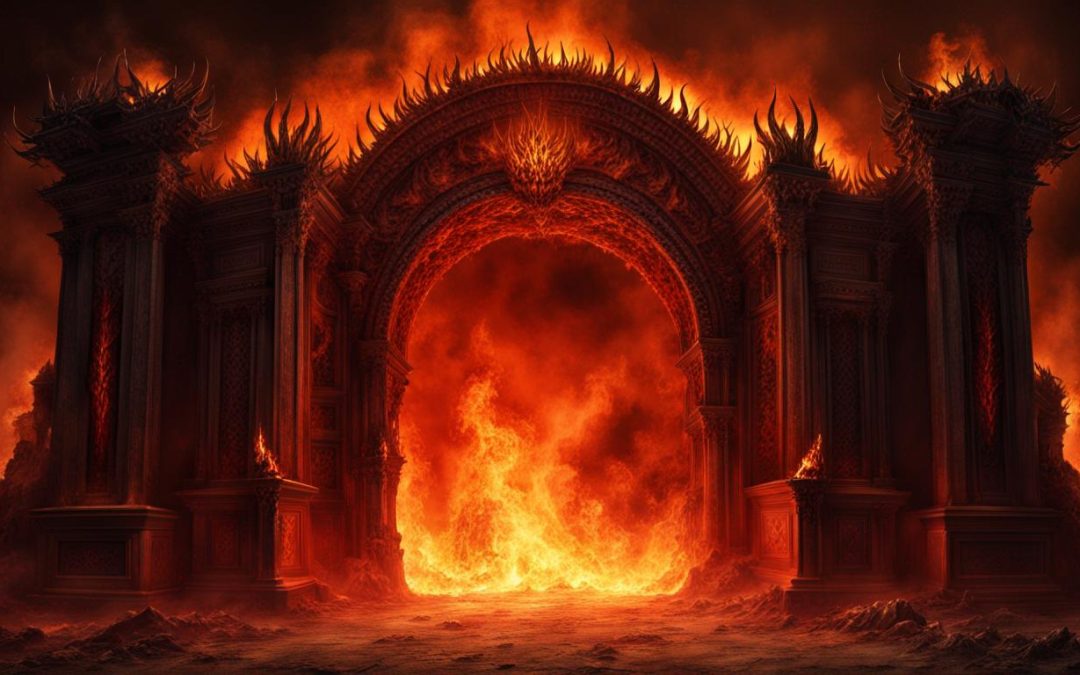In The Inferno Dante passes through the gate of Hell, which bears an inscription ending with the phrase “Lasciate ogne speranza, voi ch’intrate“, most frequently translated as “Abandon all hope, ye who enter here”.
Under the daily onslaught of depressing and even horrifying news stories it is difficult to see a way to justify being hopeful. Hope, for some, amounts to nothing more than wishful thinking. Peace, social justice, equality: these ideals seem like pipe dreams; eminently desirable but unobtainable. Why have so many of us abandoned hope?
Hopelessness may set in when we don’t know what to do, when the problems seem overwhelming and we can’t see a way forward. We feel hopeless when we don’t even know what to hope for in terms of things that could make positive changes possible.
There is a line in a song by Bruce Cockburn that expresses defiance to such a situation. He says he intends to “kick at the darkness ‘till it bleeds daylight”.
While defiance is a normal response to desperate situations it is not a solution to them. At best, defiance provides us with time to consider a possible effective course of action.
In order to get past our hopelessness and to figure out what to hope for we need a vision of the future that is not only desirable but is one that we believe is attainable. To believe in an attainable future means we need to have confidence that we know what to do to achieve it. The means to arriving at the desirable future must seem possible and practical.
Given the variety and seriousness of the global and local issues that surround us it may appear that no single solution could possibly deal with them all. But I believe there is a common cause to most of our difficulties. It is my contention that problems like armed conflict, homelessness, unfair distribution of resources and wealth, the destruction of ecosystems, and many other issues we are now facing stem from a single mistaken idea.
The idea I am referring to is success, or at least, our definition of success. If you ask a friend to name five successful people chances are the majority of those named will be people who have amassed considerable financial resources. Of course there are obvious exceptions like Nelson Mandela, Mother Theresa, and Gandhi but these people might be more appropriately classified as extraordinary people. Those we deem regular people who have succeeded in life tend to be those of considerable wealth.
Western Civilization has been built on the values of capitalism, a system predicated on the idea that success is the accumulation of wealth and the power and the social standing that goes with this. To most Westerners this is a self-evident truth. Those with more money enjoy better lives. They have more opportunities, more power, better cars, bigger houses, and are believed to be generally happier. But what may be less obvious is that capitalism is a zero sum game. It is a game where advantages accrued by one person result in disadvantages for others. Inequality is embedded in the heart of capitalism. As time passes capitalism tends to increasingly favour the wealthy elite until the discrepancy between the poor and the wealthy becomes, without some sort of government intervention, an unbridgeable chasm.
Capitalism is a system based on Western Civilization’s age old assumptions about the nature of the world and the place of human beings in it. One of the fundamental assumptions of Western Civilization, stemming from the Age of Enlightenment (17th and 18th centuries), is that humankind is separate from nature and is free to use its resources to better the lives of human beings. It is this assumption that we exist apart from nature that, I believe, is the root cause of nearly every issue we face in the world today; from climate change, to open warfare, to social inequality and beyond.
As living things we must meet certain inescapable survival needs. How we go about this depends on how we see ourselves in the world. When we assume ourselves to exist apart from each other and the world we believe ourselves to be living in a zero sum game. Any advantage that another gains is a potential loss for us. It is a world where competitive edges are important and sharing is not encouraged. As insurance against hard times it is considered wise to build up personal stores of resources and let others be responsible for doing the same. In other words this assumption of separate existence makes selfishness and greed seem like reasonable strategies for meeting our basic survival needs.
What we believe about our place in the world as individuals dictates the nature of our institutions, our systems of government, and our relations with other nations of the world. Where individualism is promoted on the personal level patriotism in encouraged at the national level. Both individualism and patriotism perpetuate and help bolster the foundational belief in separately existing people and things.
When I use the phrase “assumption of separation” I am saying that it is an assumed truth that the world is made up of separate, independently existing people and things. Saying it is an assumption points out that this “truth” is rarely even noticed, let alone questioned. But eventually any assumption will be tested by reality and it will be either validated or invalidated. In the case of the assumption of separateness, facts are emerging that indicate that this assumption is patently false. Ecologist have been demonstrating the interdependence of living things for some time now. It is now taken as fact by those who study the interconnected relationships between organisms in ecosystems that no living thing can exist apart from the life support it gets from other members of the ecosystem. Living things depend on other living things and their environment.
Since the false belief in separateness is the basis for capitalism it is fair to say that the predominant financial system in the western world is inherently flawed. As we have discussed these flaws are now manifesting in gross economic disparity leading, in turn, to problems like poverty, homelessness, and other social injustices. Capitalism is broken because it has always been running on a false assumption.
The cause of hopelessness in not inherent in our situation. It is in our faulty assessment of it. It is in our mistaken assumption of separateness. We have been operating on a false supposition about the nature of the world and our place in it. We are not separate beings in a world of separate things. We are part of a vast web of interrelationships with each other, with other living things, and with our shared environment. The fate of any part of this interdependent system affects the fate of the entire system. The assumption of separateness is exposed by the truth of connectedness. The significance of this realization cannot be overstated. It truly changes everything. Perhaps most importantly it provides the basis for a way out of hopelessness.
Jesus is purported to have said, “…the truth shall set you free.” We have been in bondage to an outmoded and erroneous idea. I believe that the observable truth of connectedness can set us free from hopelessness. As stated earlier, as living things we must meet certain survival needs and the ways in which we attempt to meet those needs depends on our beliefs about the nature of our existence. Understanding that we exist interdependently rather than as separate independent individuals makes all the difference in how we go about meeting our needs. No longer will we want to play the zero sum game of ruthless competition for resources. Interdependence tells us that we cannot selfishly look after our own wellbeing at the expense of the wellbeing of others. It tells us that it is to everyone’s advantage to take care of each other and the environment. No longer will we want to seek power as a hedge against vulnerability. Interdependence tells us our strength and security lies in supporting each other and looking after our planet. Together we can find our places in the world, individually and collectively, by living in accordance with the interconnected nature of life.
What we can realistically hope for then is that people come to realize the true nature of their interconnected and interdependent existence since this understanding will provide the means for creating a sustainable and compassionate future. And because we have the technology to make this realization spread virally across the globe there is real hope that this can happen rapidly.
Together we can not only survive but thrive. Our hope is justified by the fact that the way of the world is not separateness but connectedness. There is every reason to abandon hopelessness and embrace the hope inherent in the interconnectedness of the natural world.

